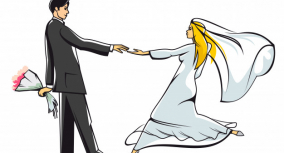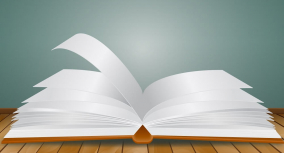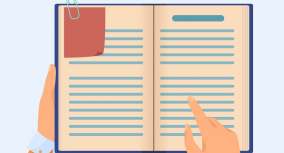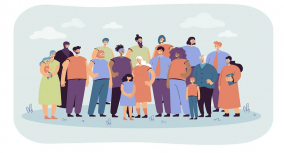Love and marriage, social class, and reputation are the key Pride and Prejudice themes. These topics are explored not only through the novel’s plot but also with the help of symbols, which are directly tied to the realities of the Regency Era. Things like reading, dancing, outdoor settings, and manors belonging to different families become symbolically charged, reflecting the characters and their feelings.
This article by Custom-Writing.org experts is here to help you get a deeper understanding of Austen’s novel. The first section will present the themes in Pride and Prejudice with quotes to illustrate them. The subsequent sections focus on analyzing symbols and motifs in the novel.
📚 Major Themes of Pride and Prejudice
Pride and Prejudice is a novel of manners written by Jane Austen in 1813. Authenticity, simple plot, and profound psychological insight make this book a memorable milestone.
Austen’s iconic novel contains plenty on themes worth exploring. Our article will focus on the 3 most prominent ones:
- Love and marriage. Every character in Austen’s novel has a primary concern that revolves around love and marriage. Finding the differences between a successful and unsuccessful marriage is among the novel’s main goals.
- Social class. In Pride and Prejudice, social class is one of the most significant plot aspects. A set of customs and laws compels characters to make choices that affect their families as well as themselves.
- Reputation. Austen’s novel brilliantly demonstrates how much the society of the Regency Era was concerned with following societal norms.

🗝️ Themes in Pride and Prejudice with Quotes
Love & Marriage Themes in Pride and Prejudice
The theme of love and marriage in Pride and Prejudice is the central issue for every character. For Austen, love that does not culminate with the wedding is pointless and frustrating. The novel resembles a sequence of different alliances. Austen’s purpose was to seek the distinctions between a successful and unsuccessful family union. The essential criterion for a happy couple is their equality in intelligence and love. Although she never mentioned it in the novel, respect also played a crucial role in the protagonists’ relationships.
Marrying a wealthy person of higher social class was the fundamental preoccupation of women in the XIX century. This fact was caused by the inferior woman’s position in those days. She had no right to inherit a parents’ house, not to mention that she wasn’t allowed to work. Thus, the only socially acceptable source of money was a good marriage.
To be fond of dancing was a certain step towards falling in love; and very lively hopes of Mr. Bingley’s heart were entertained.
Pride and Prejudice, Narrator, Chapter 3
Happiness in marriage is entirely a matter of chance. If the dispositions of the parties are ever so well known to each other or ever so similar beforehand, it does not advance their felicity in the least.
Pride and Prejudice, Charlotte Lucas, Chapter 6
Indeed, Jane, you ought to believe me. No one who has ever seen you together can doubt his affection. Miss Bingley, I am sure, cannot. She is not such a simpleton. Could she have seen half as much love in Mr. Darcy for herself, she would have ordered her wedding clothes.
Pride and Prejudice, Elizabeth Bennet, Chapter 21
In vain I have struggled. It will not do. My feelings will not be repressed. You must allow me to tell you how ardently I admire and love you.
Pride and Prejudice, Mr. Darcy, Chapter 34
I might as well inquire… why with so evident a desire of offending and insulting me, you chose to tell me that you liked me against your will, against your reason, and even against your character?
Pride and Prejudice, Elizabeth Bennet, Chapter 34
Social Class in Pride and Prejudice
In the novel, the class does not define whether a person is good or evil, intelligent or superficial, happy or miserable. But it does define other people’s perception of such a person. A high social class can guarantee respect, reverence, interest, and even money. Every single interaction in the novel is governed by social class.
Elizabeth and Darcy pertain to the same social class. However, Darcy’s fortune and Pemberley mansion are among the most prominent estates of the landed gentry. Meanwhile, Elizabeth’s parents are poor, and a distant relative will inherit their house. The end of the story implies that the successful marriages of Elizabeth and Jane will save Mr. and Mrs. Bennet from poor sunset years. Moreover, Elizabeth financially helps Lydia, as her husband, Mr. Wickham, is an impenitent gambler. These facts suggest that a successful marriage is a blessing for the entire family, not just for the bride.
Quotes on Class in Pride & Prejudice
They were of a respectable family in the north of England; a circumstance more deeply impressed on their memories than that their brother’s fortune and their own had been acquired by trade.
Pride and Prejudice, Narrator, Chapter 4
I have an excessive regard for Miss Jane Bennet, she is really a very sweet girl, and I wish with all my heart she were well settled. But with such a father and mother, and such low connections, I am afraid there is no chance of it.
Pride and Prejudice, Mrs. Hurst, Chapter 8
Mr. Gardiner was a sensible, gentlemanlike man, greatly superior to his sister, as well by nature as education. The Netherfield ladies would have had difficulty in believing that a man who lived by trade, and within view of his own warehouses, could have been so well-bred and agreeable.
Pride and Prejudice, Narrator, Chapter 25
Reputation in Pride and Prejudice
Reputation was a central theme in those days’ English literature, even more than it is now. Both men and women were concerned about their status, but for the latter, a single dubious event could close all doors and cut off any hopes for a good marriage. Any woman stepping outside the social norms risks becoming an outcast.
The first glimpse of this problem was seen when Caroline reacted with disgust when Elizabeth arrived at Netherfield with dirty skirts. The reader also sees the dramatic decay of Mrs. Bennet’s reputation due to her ridiculous and straightforward behavior. These two examples of tarnished reputation seem to be trivial and foolish. However, when Lydia runs away with a man who does not want to marry her, the reader gets the full picture of the utmost seriousness of reputation for women. Darcy’s intervention is not as generous from a modern perspective as it was in the XIX century. He saved not just Lydia. All the Bennet family would become unfavorable in any decent house if Darcy did not make Wickham marry Lydia.
Reputation Quotes from Pride & Prejudice
To walk three miles, or four miles, or five miles, or whatever it is, above her ankles in dirt, and alone, quite alone! What could she mean by it? It seems to me to show an abominable sort of conceited independence, a most country-town indifference to decorum.
Pride and Prejudice, Miss Bingley, Chapter 8
My younger sister has left all her friends—has eloped; has thrown herself into the power of—of Mr. Wickham. They are gone off together from Brighton. You know him too well to doubt the rest. She has no money, no connections, nothing that can tempt him to—she is lost for ever.
Pride and Prejudice, Elizabeth Bennet, Chapter 46
They agree with me in apprehending that this false step in one daughter will be injurious to the fortunes of all the others; for who, as Lady Catherine herself condescendingly says, will connect themselves with such a family?
Pride and Prejudice, Mr. Collins, Chapter 48
⚙️ Pride and Prejudice Symbols Explained
Austen moderately uses literary devices, preferring indirect means such as sarcastic humor to convey her ideas. The novel has almost no description of landscapes, dresses, facial traits, or settings. All the necessary details are exposed through the characters’ actions or in dialogues. However, there are some recurring images that represent specific concepts. These include:
- Reading,
- Dancing,
- Outdoor settings,
- Austerity vs. luxury.
Let’s study them in more detail.
Reading Symbolism in Pride and Prejudice
Caroline Bingley, her brother and sister, and Mr. Darcy spend a lot of time debating what constitutes an “accomplished woman.” Mr. Darcy states that “the improvement of her mind by extensive reading” is something that must be added to Caroline Bingley’s list of accomplishments.
All this she must possess… and to all this she must yet add something more substantial, in the improvement of her mind by extensive reading.
Pride and Prejudice, Mr. Darcy, Chapter 8
Elizabeth Bennet was constantly encouraged to read by her father. We can see that thanks to her father’s library, Elizabeth received her revolutionary vision and became an accomplished person.
Austen is saying that in her time, reading was one of the few activities that could help women self-develop. Still, it was only accessible to a very few. Only the women who went against the social norms could get their hands on a book.
Dancing Symbolism in Pride and Prejudice
During the Regency era, dancing was a very powerful social tool. A gentleman would politely express romantic intentions by asking a woman to dance, while declining to dance with someone was equivalent to rejecting them.
For instance, Darcy seems to treat everyone with contempt since he only dances with people from his own group. At the same time, because Mr. Bingley dances with Jane twice in one night, everyone can tell that he is interested in her.
In addition, dancing takes up most of Jane and Mr. Bingley’s courtship. They hardly ever talk outside of parties. This might be explained by Jane’s desire to act appropriately. As a respectable young woman, she chooses the only polite method of courtship: dancing.
The Outdoor Setting Symbolism in Pride and Prejudice
In Austen’s Pride and Prejudice, every detail plays a significant role. This includes nature, which functions as a metaphor for the main heroine’s freedom.
When Elizabeth Bennet is able to spend time outside, especially by herself, she is the happiest. Elizabeth loves taking walks in the outdoors, unencumbered by social norms. She finds calm not inside the walls of the large estates she visits but on their garden paths.
Austerity vs. Luxury Motifs in Pride and Prejudice
One of the novel’s supporting characters, Mr. Collins, is portrayed in the story through the images of austerity: his modestly furnished home is unadorned, and he talks of his “plain manner of living, small rooms, and few domestics.” This picture of austerity ultimately clashes with the story’s depiction of Mr. Collins as a conceited man.
The portrayal of Mrs. Bennett also hints at desire for material possessions. This is achieved through imagery associated with luxury:
- She worries about the wedding attire as soon as she finds out about her daughter Lydia’s engagement.
- Despite Lydia endangering the family’s reputation, Mrs. Bennet is solely concerned with the attire.
- The passage about “fine muslins, new carriages, and servants” alludes to Mrs. Bennett’s refined tastes and propensity for extravagant displays. At the same time, it hints at her shallow character.
🎨 Metaphors in Pride and Prejudice
Piano Playing
Playing the piano is one of the most remarkable metaphors in the novel. It represents persistence and self-discipline, as well as self-awareness. At the first ball, Mary Bennet plays the piano, ignorant of her lack of taste and skill. Lady Catherine boasts of her perfect education and ability to play as if talent consists of education only.
Miss Bennet would not play at all amiss if she practised more, and could have the advantage of a London master. She has a very good notion of fingering, though her taste is not equal to Anne’s. Anne would have been a delightful performer, had her health allowed her to learn.
Pride and Prejudice, Lady Catherine de Bourgh, Chapter 31
Elizabeth can play the piano as well, although she knows her limits.
Estates as Metaphors
Austen used the description of the houses to give us more information about their owners. It’s a clever technique that allows the readers to see the families’ distinctive traits and social status.
📍 Longbourn estate
The Bennets’ house is a good example of a modest yet appropriate way of life. There is no detailed description of Longbourn estate, but one can assume that it is comfortable and proper, with “decent rooms.” The Bennets used to be richer in the past, but they preserved their social status.
📍 Netherfield park
Mr. Collins is very concerned with worldly blessings, and he lives near the pompous estate of Lady Catherine De Bourgh.
📍 Pemberley manor
The estate of Mr. Darcy serves as both a representation of the man who owns it and a literal focal point of the book. When Elizabeth visits the estate, she is mesmerized by the property’s beauty, charm, and gorgeous surroundings. This suggests that she also has a refined taste and appreciates simplicity.
And of this place… I might have been mistress! With these rooms I might now have been familiarly acquainted! Instead of viewing them as a stranger, I might have rejoiced in them as my own, and welcomed to them as visitors my uncle and aunt.
Pride and Prejudice, Elizabeth Bennet, Chapter 43
😆 Satire in Pride and Prejudice
Jane Austen uses satire to highlight the absurdity of stereotypes of her time. The main target of her ridicule is the silliness of the fuss about marriage. In the late XVIII and early XIX, women were expected to marry a wealthy and powerful man. The best thing a woman could do in her life was giving birth to a boy and raise him as a decent member of society. Thus, women often did not expect anything more from themselves than to marry a relatively handsome man with a fortune and to have male children.
Austen also uses a satirical tone when depicting arrogance and pride. From her point of view, these traits hinder healthy communication and spoil relationships.
If you’re looking for exciting essay ideas on the novel, check out our list of Pride and Prejudice essay topics.
🔗 References
- Pride and Prejudice | Summary, Characters, & Facts | Britannica
- Historical Context for Pride and Prejudice by Jane Austen
- When Was Pride and Prejudice Written? | Study.com
- Materialism in Jane Austen’s Pride and Prejudice
- Pride and Prejudice Themes and Literary Devices – ThoughtCo
- Literary Themes in Pride and Prejudice
- The Marriage Lessons of ‘Pride and Prejudice’ – The Atlantic











